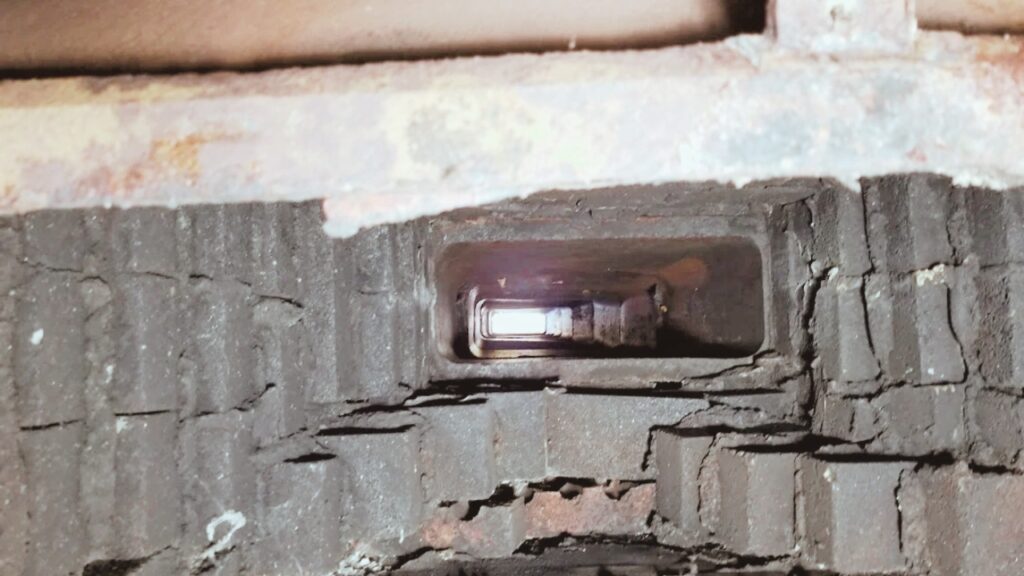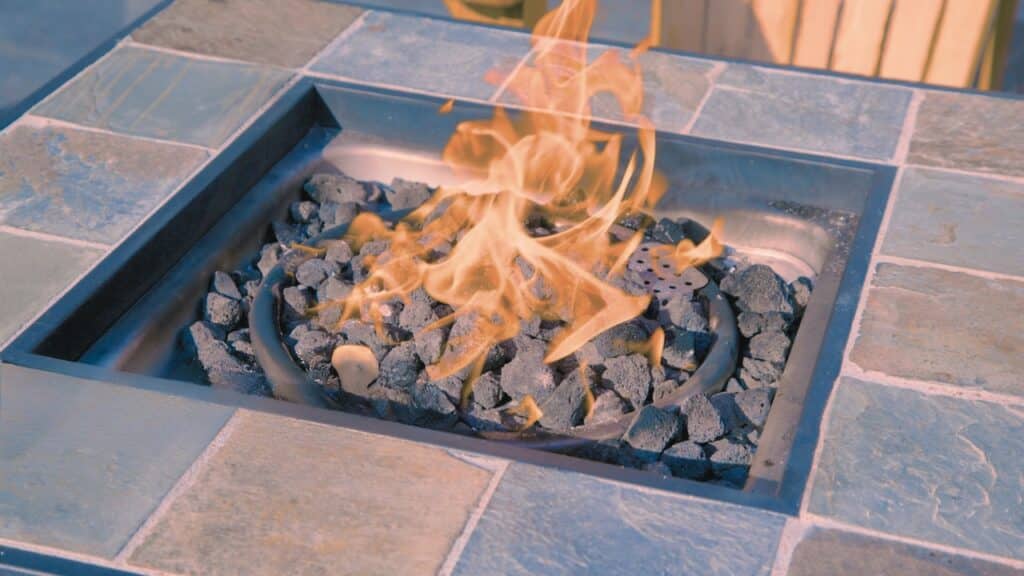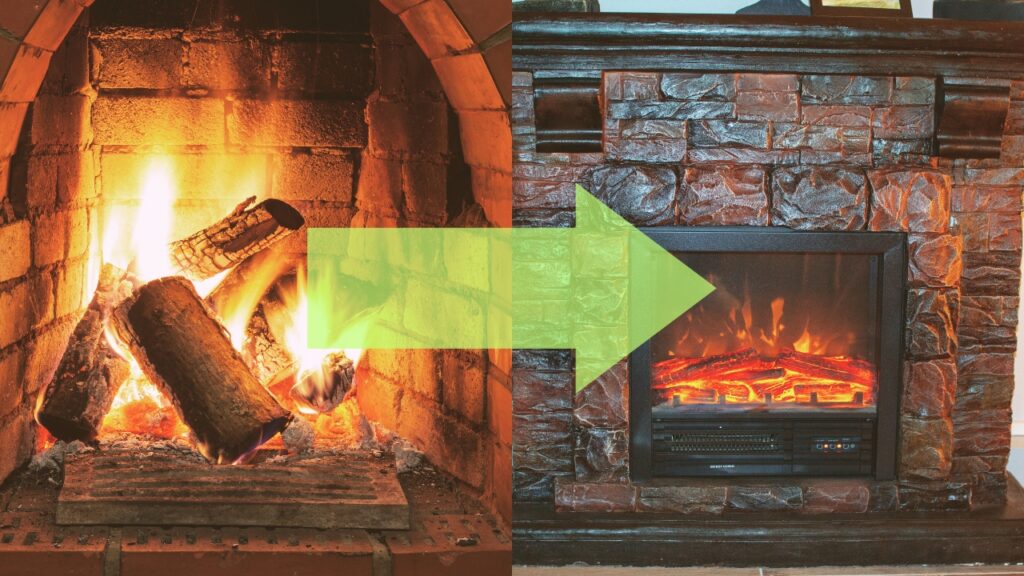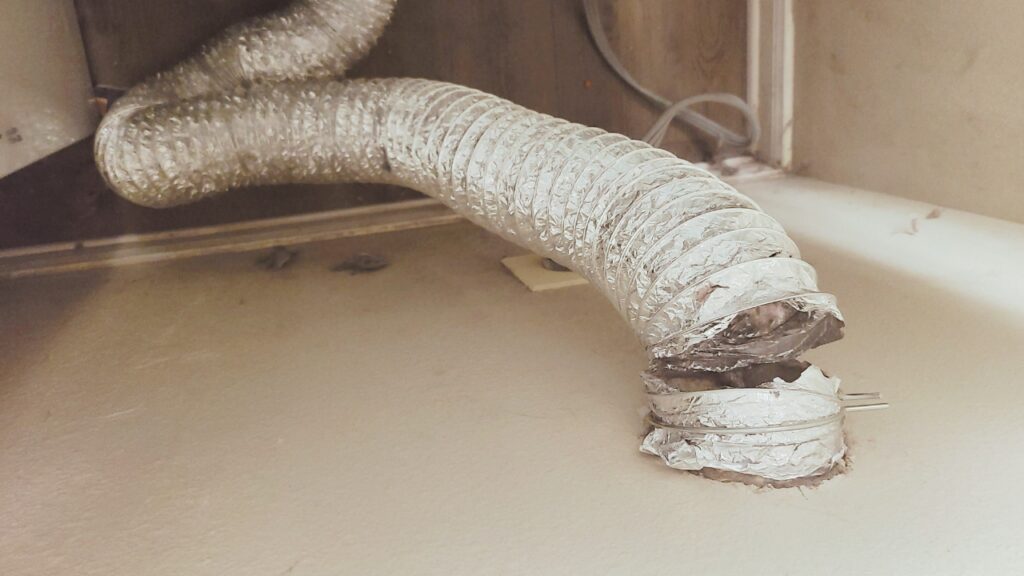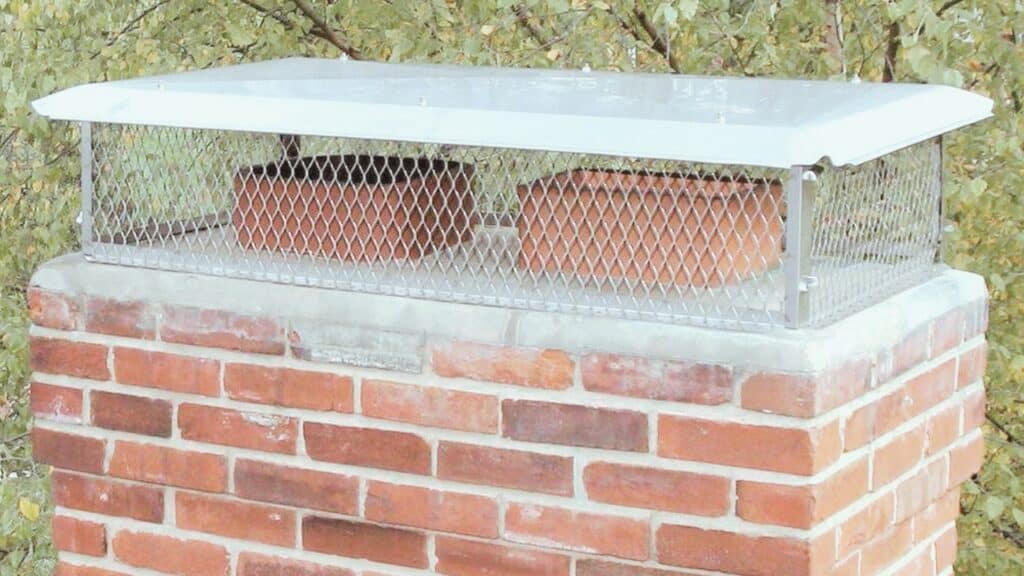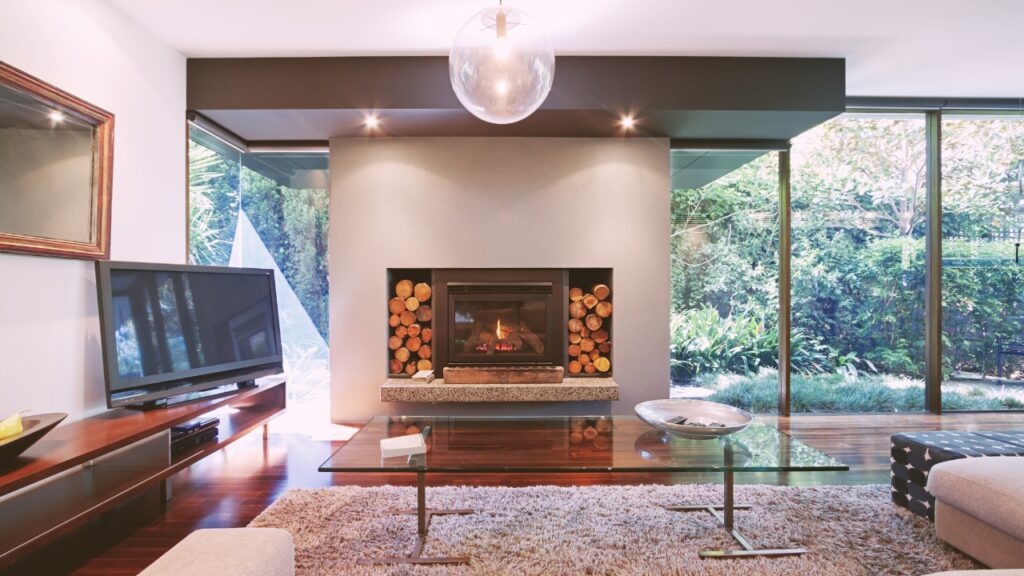If you’ve heard strange noises in your chimney, there’s a good chance you have raccoons nesting inside. Raccoons are common in urban areas and often seek out warm, dark places to make their home, like chimneys.
While raccoons are generally harmless, they can cause damage to your items at home if they nest in your chimney for an extended period.
This guide is for you if you think you have raccoons in your chimney. We’ll show you how to get rid of raccoons in chimney and prevent them from returning in the future.
Can Raccoons Live in Chimneys?
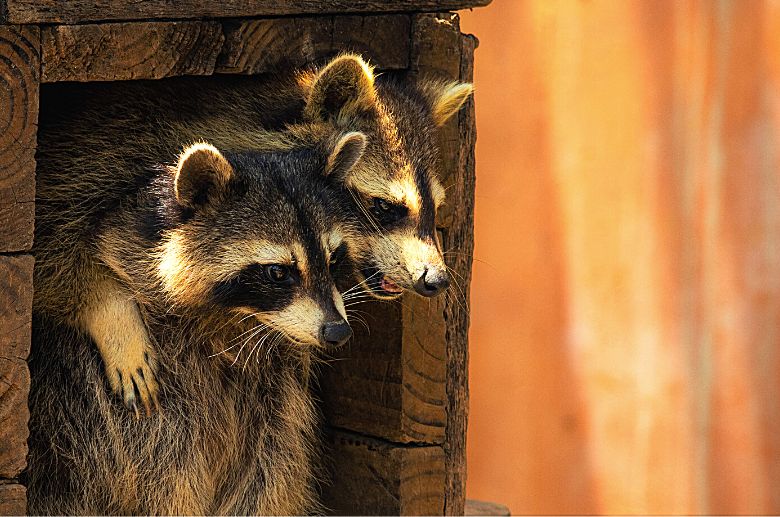
It’s common for raccoons to take up residence in a chimney. After all, chimneys offer shelter from the elements and protection from predators.
Raccoons are adept climbers and can enter your chimney in several ways. They may climb outside the chimney or down from the roof. Raccoons are also known to enter through open chimney caps or unattended openings around the fireplace.
They may stay in your chimney for 8-10 months after giving birth to their young. If they aren’t causing any damage, wait until they leave on their own.
If raccoons have already made their way into your chimney, you should know a few things. First, raccoons will not generally stay in the chimney if they can find an alternate exit.
However, they may become trapped if the outside opening is blocked or they cannot escape. In addition, raccoons often nest in chimneys during the spring and summer months, so you may have raccoons in your chimney even if you do not see them coming and going.
If you have questions or have raccoons in your chimney, it is best to contact a professional for services.
How Do You Know if You Have Raccoons in Your Chimney?
Several signs may indicate you have raccoons in your chimney. Some of the most common signs include:
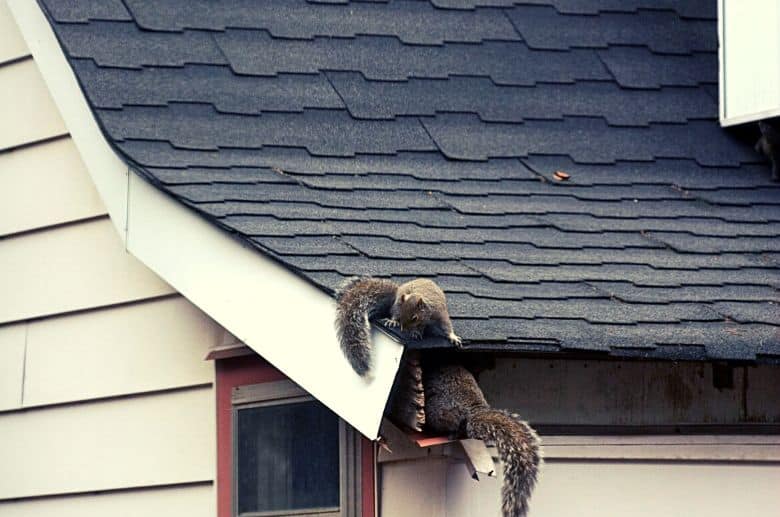
Strange Sounds in the Chimney
Raccoons are nocturnal animals, so you’re most likely to hear them at night. If you hear raccoons in your chimney, it will likely sound like rustling, scurrying, or heavy footsteps.
You may also hear vocalizations such as chirping, crying, or growling. These sounds are usually made by baby raccoons, which are called kits.
If you hear strange noises in your chimney, you should contact a professional to determine if raccoons are the cause.
Pungent Smells from Your Chimney
When raccoons urinate, defecate, or give birth inside your chimney, it can cause a strong, unpleasant smell. This smell is often described as resembling rotting garbage.
If you notice this smell coming from your chimney or fireplace, it indicates that raccoons are present.
Droppings in Your Fireplace or on the Chimney
Raccoons’ droppings look similar to those of dogs and are usually dark in color. They may be found in your fireplace or on the ground outside near the base of your chimney.
If you find raccoon droppings, it’s essential to exercise caution as they can contain bacteria and parasites that may be harmful to humans. It’s best to contact a professional to have the raccoons removed.
Nesting Materials
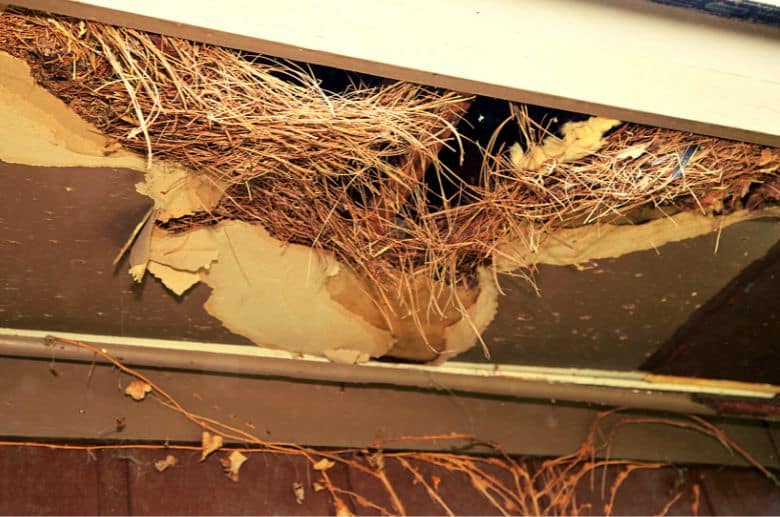
Another good indication that raccoons are present is if you find nesting materials such as twigs, leaves, or insulation in your fireplace or near the base of your chimney.
Raccoons often build their nests using soft materials such as insulation, leaves, and twigs. They do this because it helps keep them warm and safe. If you find nesting materials near your fireplace or chimney, raccoons are likely nearby.
Raccoons also use cardboard, wood chips, and other construction materials to construct nests for their young. If you come across nesting materials, contact a professional to have the raccoons removed.
Visible Damage on the Bricks
Finally, if raccoons are present, you may notice visible damage on the bricks of your chimney. Raccoons often sharpen their claws by scratching the bricks, which can cause extensive damage over time.
If you see any of these signs, it’s essential to contact a professional as soon as possible to have the raccoons removed. Removing raccoons on your own can be dangerous and may even result in injuries.
——
Do You Need to Hire Chimney & Fireplace Expert?
Get free quotes from qualified experts near you. No commitment required!
——
How to Remove Raccoons from the Chimney – A Step-by-Step Guide
Suppose you are willing to get your hands dirty and want to remove the raccoons from your chimney. In that case, you can utilize the DIY method described below.
DIY Disclaimer
Before getting started, it’s important to remember that this method is only recommended if you are willing to take the necessary risks. Attempting to remove raccoons on your own can be dangerous and may even result in injuries.
If you would rather not take any risks, it’s best to contact a professional for assistance.
What You’ll Need
- A flashlight
- A pair of heavy gloves
- A dust mask or respirator
- A drop cloth
- A sturdy ladder
- A live trap (large enough to fit a raccoon)
- Bait for the live trap (raccoons are attracted to foods such as cat food, fish, chicken, and marshmallows)
- A disinfectant
Step 1: Identify if You Have Raccoons
This might seem obvious, but it’s essential to be 100% sure that raccoons are the animals causing the problem. As mentioned before, several signs may indicate you have raccoons in chimney.
If unsure, using a flashlight is the best way to confirm. You can use the steady ladder to climb up the chimney and look around with the flashlight. You know you have a problem if you see raccoon droppings, tracks, or even the animals themselves.
Step 2: Put on Protective Gear
Wearing protective gear is vital to prevent any diseases from spreading. Ensure you wear gloves, a dust mask or respirator, and a drop cloth. The last thing you want is for the raccoon mess to spread and make an even bigger mess.
Step 3: Set Up the Live Trap
The next step is to set up the live trap. You can find these at most hardware stores, but make sure it’s large enough to fit a raccoon. Once you have the trap, bait it with cat food, fish, chicken, or marshmallows.
Place the trap near the chimney’s opening, preferably on a drop cloth. This will make it easier to clean up once the raccoons are caught.
Step 4: Check the Trap Regularly
Now, all you can do is wait and check the trap regularly. It’s essential to check it at least once daily to see if any raccoons have been caught.
If you’re lucky, you might catch the raccoon(s) within a day or two. However, it’s not uncommon to take a week or more. Just be patient and keep checking the trap regularly.
Step 5: Release the Raccoons
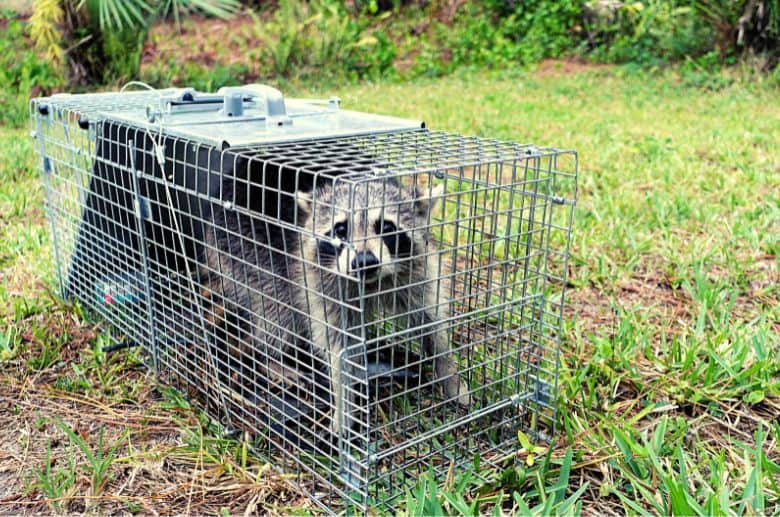
Once you have caught the raccoon(s), it’s time to release them back into the wild. The best way to do this is to drive them several miles away from your home before letting them out of the trap.
Make sure you open the trap door slowly and carefully. Raccoons can be aggressive, and you don’t want to get hurt.
Step 6: Clean Up the Area
Now that the raccoons are gone, it’s time to clean up the area. This includes removing the drop cloth and any other debris. It would be best if you also disinfected the area to prevent the spread of diseases.
You can use a raccoon or wildlife-specific disinfectant to disinfect the area and eliminate unwanted smells.
What Not to Do
There are several things you should NOT do when trying to remove raccoons from your chimney.
- Do not attempt to smoke them out with a fire. This is inhumane and will only stress the animals out.
- Do not use poison or other harmful chemicals. These can be dangerous, not only to the raccoons but also to you and your family.
- Try to avoid catching them by yourself. Raccoons can be aggressive, and you don’t want to get hurt. It’s best to leave this to the professionals.
If you’re uncomfortable removing the raccoons, you can always hire a professional. Professionals have the experience and knowledge to safely and effectively remove the animals from your chimney.
Make sure you research to find a reputable company in your area. Ask for referrals from friends or family, and read online reviews before making your decision.
——
Do You Need to Hire Chimney & Fireplace Expert?
Get free quotes from qualified experts near you. No commitment required!
——
How Do You Keep Raccoons Out of Your Chimney?
After going through all the troubles of removing raccoons from your chimney, you’re probably wondering how to keep them out.
You can do several things to deter raccoons from taking up residence in your chimney again.
- Install a Chimney Cap: A chimney cap will prevent animals from entering your chimney in the first place. Ensure it’s properly installed and secured so raccoons can’t remove it.
- Seal Off the Entry Points: Raccoons typically enter through the flue or opening at the top of the chimney. These must be sealed off so the animals can’t get back in.
- Remove any Food Sources: Raccoons are attracted to your property because of the food. If you have a garbage can or bird feeder, ensure they’re correctly secured so raccoons can’t get to them.
- Trim Trees and Bushes: Raccoons can climb trees and bushes to get to your chimney. Trimming them back will make it more difficult for the animals to get to your home.
- Be Patient: Even if you take all these precautions, there’s still a chance that raccoons will try to get into your chimney again. Be patient and keep an eye out for any signs of activity.
If you do find raccoons in your chimney again, don’t panic. Just follow the steps above to remove them safely. With patience and perseverance, you can keep your home raccoon-free.
How Much Does it Cost to Remove Raccoons from Chimneys?
The average cost to remove raccoons from a chimney is $300 to $500. However, this will vary depending on the company you hire and the severity of the problem.
If you only have one or two raccoons in your chimney, the cost will be on the lower end of the spectrum. The price will be higher if you have many raccoons or if they’ve caused damage to your home.
Conclusion
Raccoons in chimney can be a nuisance. Not only are they loud, but they can also cause damage to your home.
If you have raccoons in your chimney, the best thing to do is to hire a professional to remove them safely and effectively. But if you’re up for the challenge, you can remove them using our DIY tips above.

